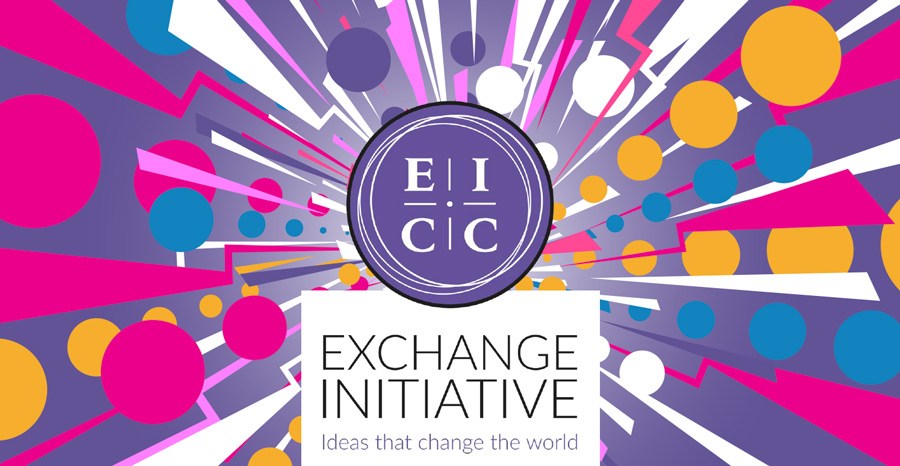
The Exchange Initiative comprises a group of representatives from Edinburgh’s universities, and NHS Lothian, who collaborate on attracting global conferences to Edinburgh for the benefit of the whole city. Collectively, the group is raising the profile of Edinburgh’s key sectors and creating lasting positive impacts for the city in the fields of health, wellbeing and sustainability. Crucially, the Initiative aims to make business events more inclusive for the wider community.
GARY HUTCHISON, Dean of Applied Sciences at Edinburgh Napier University and Chair of the Exchange Initiative, and Liz Grant, an Assistant Principal of the University of Edinburgh, explain how the Exchange Initiative has achieved success in its first year – and what its ambitions are for the future.
Raising the profile of Edinburgh’s key sectors
Gary: I think we’ve been successful in raising the profile of Edinburgh’s key sectors so far. It was a slow burn, but the EICC had a really clear vision of what they wanted. What we really wanted to address, alongside the EICC, was how conferences can truly benefit the people in the city, rather than just certain industries or universities.
We’ve been encouraging the universities to think beyond their own institutions and to work collaboratively. The Exchange Initiative gives us the platform to be able to put this into motion. One of our big pushes was to think about the city's sustainability strategy, and to show value to the policymakers in the council, the Scottish Government and the local populus.
In addition to helping to raise the profile of the Health sector, Life Sciences is also an area we’re keen to promote. Edinburgh has got excellent innovation in Digital Technologies, Creative Industries, Tourism and Food and Drink. These are all industries whose messages we want to push out.

One year on: Reflecting on the Exchange Initiative’s success
Gary: I think what's been really effective over the last year is each of the universities sending people into the Exchange Initiative meetings who are empowered to make decisions or push forward ideas. The organisations - the University of Edinburgh, Queen Margaret University, Edinburgh Napier University, Heriot-Watt University, NHS Lothian, and the EICC - are able to come together to discuss key topics.
"We have very good relationships with each other, but we don’t often meet to talk specifically about conferences, and about how we could work together to bring work into the city."
In the last year, the Exchange Initiative has supported eight bids, totalling £8 million of economic value to the city, which is a great achievement in the Initiative's first year.
Liz: The most creative thing about the Exchange Initiative is the opportunity for the different universities to be together in the same room, sharing ideas and putting forward their ambitions to find out what we can do together that would make us stronger.
Even though we’re big universities and have very good relationships with each other, we don’t often meet to talk specifically about conferences, and about how we could work together to bring work into the city. So the physical presence of the Exchange Initiative has been very beneficial in enabling that.

Boosting community engagement
Gary: The EICC has some really great tools to help track and measure conference sustainability, carbon management and offset. They also have community-led engagement initiatives, which help to build a more inclusive, mutually-beneficial model between conferences and the city’s public.
"We want to help to share a conference’s message out across the city."
We've been looking at ways to try and open up spaces at conferences for the community to get involved. The EICC has been looking into opportunities for building that concept into the bids with the conference organisers to help develop lasting impact for the city.
Liz: To echo Gary, we want to work with communities who may feel disenfranchised, who may never actually have set foot in the EICC. We want to help to share a conference’s message out across the city. For example, if a conference was on respiratory health, people across the city might think: ‘OK, that actually matters to me. The air I breathe is going to impact me and impact conditions like asthma. I wonder what the new science is?’
What we are doing is identifying pathways of engagement to move forward with. We also want to promote more free public lectures to give people the opportunity to learn more about a topic and ask questions.
Another part of our community work relates to Edinburgh's climate impact. What is the city’s sustainability policy and what initiatives are we carrying out, as a city? Could there be opportunities for the Exchange Initiative to link the city up with scientists who could contribute to the policy?

Promoting professional collaboration
Liz: We have hosted a few dinners over the past year, where we brought people together, whose paths do not normally cross, to encourage them to discuss these particular issues. There was a very successful engineering dinner in February, where leading engineers and business and industry leaders met and talked about potential opportunities and ways of engaging together.
"People became more interested in coming to Edinburgh because they could see the organisations they could partner with to build conferences around clusters of expertise and excellence."
Gary: When we created the Exchange Initiative page, we considered our areas of expertise. Pulling it together, we were able to see the extent of information and evidence we could share about renewable energy or digital health. By putting it on the website, people became more interested in coming to Edinburgh, as a destination, because they could see the organisations they could partner with to build conferences around clusters of expertise and excellence.
The Exchange Initiative offers a new approach to knowledge exchange and conferencing by helping to connect the EICC with the right people to help broaden the scope for the development of new bids for the city.
One-year milestones
Gary: I'm proud that we have already managed to get senior staff at the universities to come and be involved in the Initiative. The Scottish Government has also been instrumental in pushing the university sector to get the knowledge out of the universities into the communities.
I think what people now see is that this is a different vehicle for knowledge exchange that wasn't there before, and that's quite powerful.
"One success has definitely been the number of people across universities who now realise the power of bringing people together for events."
Liz: Over the last year, we have initiated several early-stage opportunities, which we’re looking forward to bringing to fruition. Part of our success has been starting off some of these projects, connecting the right people together and facilitating discussions around what new and unknown conferences could come to Edinburgh.
I know that the group has been instrumental in making introductions for some of these big conferences, and so far a total of 15 conferences have been identified by the group. Another success is that the Initiative’s public facing message is encouraging academics across the universities to recognise that the EICC can help support them with the bidding process of bringing a conference here.
One success has definitely been the number of people across universities who now realise the power of bringing people together for events, to discuss recent research and to share knowledge.

Objectives for the next year
Gary: The next thing I want to do is get the Exchange Initiative in front of the policymakers in government, because they’re the ones coming up with new policies that are changing the city and changing lives. Therefore, I want to try to get them involved in these events so they can come and learn about the most up-to-date knowledge and thinking, which in turn could help shape the policies they develop.
We're also looking at ways to engage with politicians and senior civil servants, with the aim of connecting them with the most relevant academic advice, or cutting edge changes makers in industry. One of the ways we could really make an impact would be by holding a conference that aims to address a specific city’s challenge and bring together many disciplines to discuss how to solve that problem at the event.
Liz: Another big question for a lot of people going forward is, how can we manage the carbon footprint of conferences and offset the negative environmental impacts.
"We want a momentum within universities not just to attract conferences, but to skill up early career researchers to be really capable of running world class conferences."
I think this is one of the areas where the Exchange Initiative is cutting new ground. We’re discussing how Edinburgh as a city, how we as universities and how the EICC itself can work together to be transformative, particularly around alternative energy and alternative ways of reducing waste. The aim is to ensure that we’re maximising the time people spend together at conferences. Crucially, we want to work together as a community so that the bigger initiatives and challenges that the world is facing can be addressed by a collaborative group.
Another aspect we want to focus on is ensuring that there's a momentum within universities not just to attract conferences, but to skill up early career researchers to be really capable of running world class conferences.
We also want to create a student community who will go through university and take jobs in the area of conference design and planning. As a result of the Exchange Initiative, we’re looking at internships and mentorship to really stimulate the idea that Scotland is a hub of knowledge, it's a centre for sharing and a place where we exhibit community values, where people can come together to share so that something bigger can come out of it.

Longer-term ambitions
Gary: I recently visited London with EICC for a Visit Britain event to showcase the different approaches to conference engagement. It would be very flattering if people saw the way that we were doing it in Edinburgh – which I think is different to how other cities approach conference planning – and we were able to inform their thinking and lead change.
The goal is to continue showing the breadth of our reach; there's only 5.5 million of us here in Scotland, and the knowledge that we generate is internationally impactful. It would be amazing for the EICC and the Exchange Initiative to be able to demonstrate not only how we're making changes locally, but how our approach could have an impact beyond Scotland.

"There's only 5.5 million of us here in Scotland, and the knowledge that we generate is internationally impactful."
Liz: We want to shape how we use knowledge, and show how conferences give us a platform to share new findings. How do we get the maximum number of people to hear this, and how do we get people who live in the city to see how and why it matters to them? We're talking about a planetary health crisis, climate change and food and water security.
This, even though it sounds as if it's couched in a scientific language, is actually about the here and now, and it’s our collective future. We want to focus on how we can get world leaders to be in conversation with those who are living and working in the city, and with our student communities, so that they are inspired to say: ‘Okay, I've had a chance to hear this, think about it and ask a question. Something can happen from this.’
